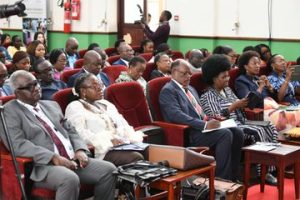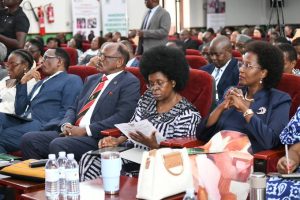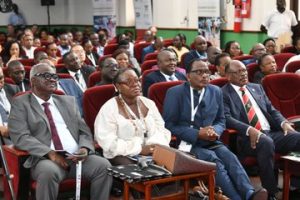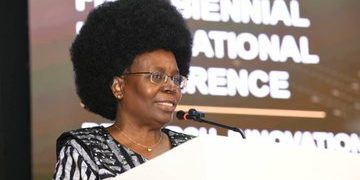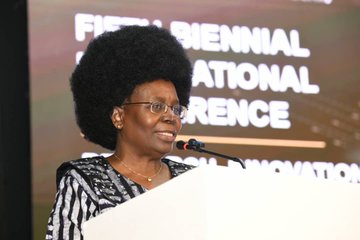The Minister of Science, Technology and Innovation in the Office of the President, Hon. Dr Monica Musenero Masanza, has challenged African researchers to “always seek what is difficult to achieve,” urging them to turn Africa’s natural resources into sophisticated, marketable products that can drive economic growth and innovation.
Dr Musenero made the remarks while presiding over the opening of the Fifth Biennial International Conference of the African Research Universities Alliance (ARUA) at Makerere University, held under the theme “Research, Innovation and Artificial Intelligence for Africa’s Transformation.”
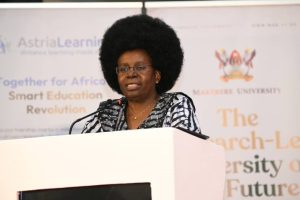
“Uganda is intentionally building an economy around pathogens,” she said. “We are focusing on pharmaceuticals, health inputs for animals, humans, and plants, and developing prevention, therapy, and measurement tools that will make our natural resources economically productive.”
She highlighted Uganda’s efforts to establish the continent’s most competent pharmaceutical manufacturing campus and the ongoing development of a Biosciences Park to support research, innovation, and commercialisation.
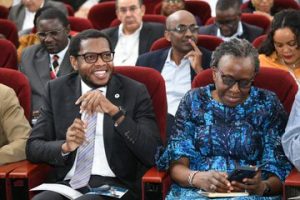
“We are not just extracting resources,” Dr Musenero emphasised, “we are creating high-value products—like the patented resistant starch technology for matoke that produces gluten-free flour and probiotics. This is how we turn science into enterprise.”
The Minister said the government is committed to intentional scientific development, focusing on sectors that can generate economic value, and encouraging universities to connect research directly to industry and national priorities.
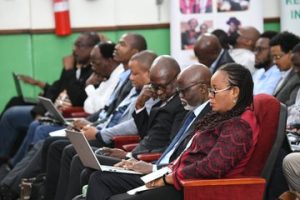
“Africa Rising isn’t a slogan—it’s a roar of self-made momentum: educated youth, surging economies, universities that rival any. This is our moment to seize,” she declared. “Science must go beyond high-level journals and conferences to solutions on our tables, homes, streets, restaurants, and offices.”
Makerere University Council Chairperson Mrs Lorna Magara echoed Musenero’s call, stressing that Africa’s development narrative must evolve from imitation to innovation.
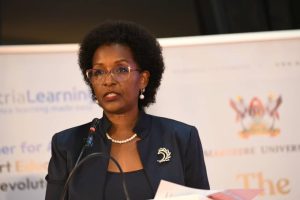
“Africa’s story must not be one of catching up; it must be one of leapfrogging,” Magara said. “And to leap, we must be courageous enough to reimagine, to innovate, and to believe that the solutions to Africa’s challenges can and must emerge from within Africa.”
She cited Makerere’s ongoing investments in transformative initiatives such as the Makerere Research and Innovation Fund, the AI and Data Science Research Centre, and the Makerere University Innovation Pod (UniPod), describing them as “proof of what African universities can achieve when they embrace innovation with intentionality and vision.”

In his address, Makerere Vice Chancellor Prof. Barnabas Nawangwe called for research that responds to Africa’s most urgent questions.
“How will we feed Africa’s exploding population? How will we ensure the health of our people? Where will jobs for our youth come from? And how can we leverage artificial intelligence to emancipate our people from poverty?” he asked.
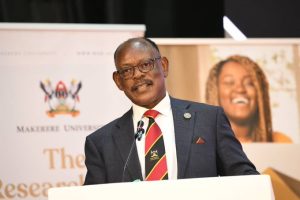
Prof. John Owusu Gyapong, the ARUA Secretary General, outlined some of the continent’s pressing challenges—including food insecurity, health crises, and social inequalities—while highlighting the transformative potential of AI in agriculture, health, and transportation.
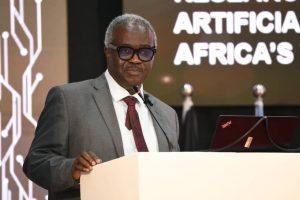
Prof. Robert Wamala, Chairperson of the Conference Organising Committee, welcomed more than 500 delegates from across Africa and beyond, commending his team for their efforts in staging the three-day event.
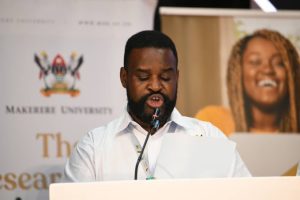
“This conference is an opportunity for great deliberations on research and development,” he said. “The ideas shared here will shape Africa’s future.”
The ARUA 2025 Conference, hosted at Makerere University from October 29 to 31, aims to strengthen research and innovation capacity among African universities through collaborative networks, dedicated funding, interdisciplinary research, and ethical innovation that prioritises human and societal needs.
